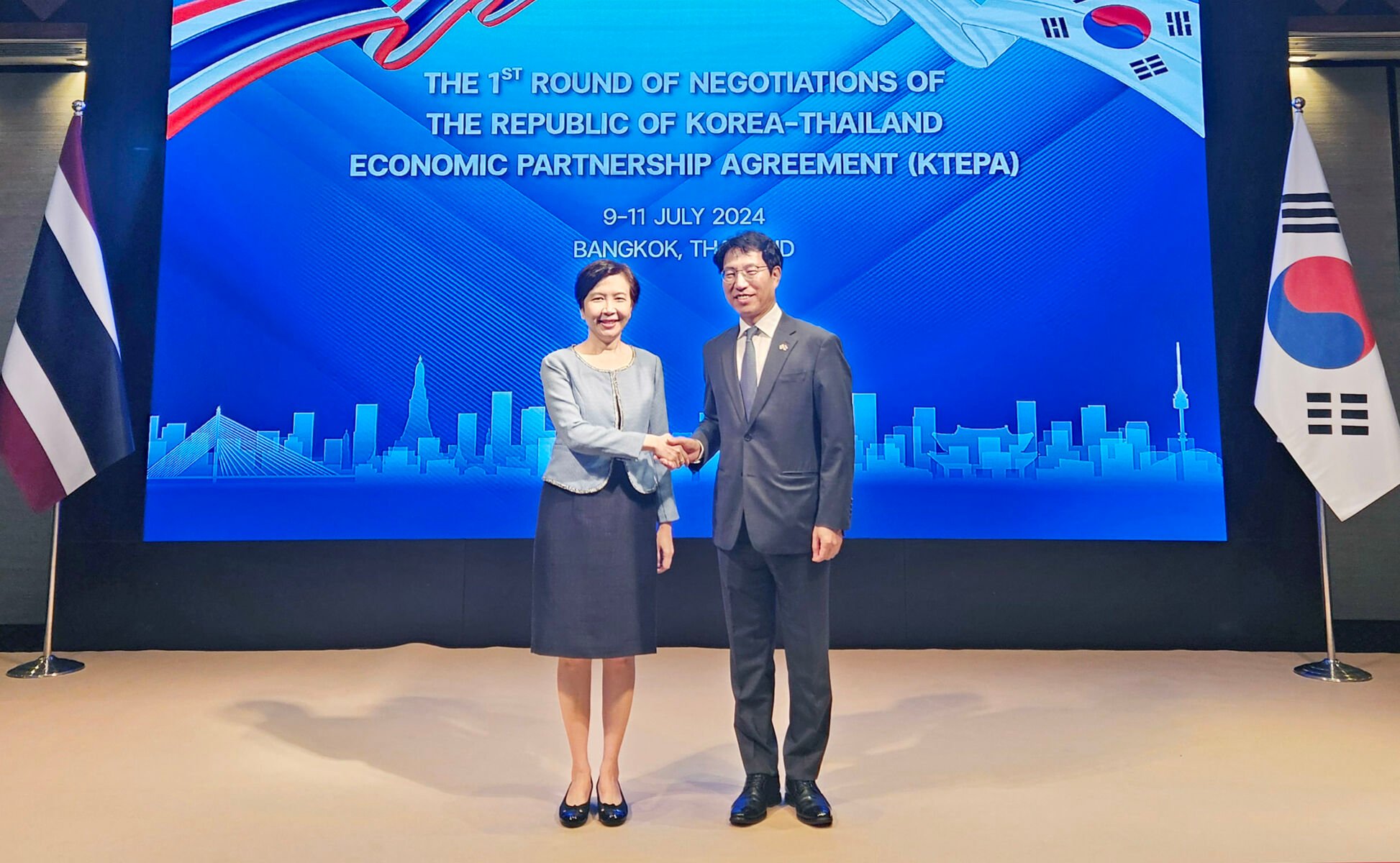Seoul-searching: South korea & Thailand kickstart trade pact talks

The Trade Ministry of South Korea yesterday announced the initiation of negotiations with Thailand to establish an Economic Partnership Agreement (EPA) to enhance bilateral trade and investment.
The South Korean delegation, headed by Deputy Minister for FTA Negotiations Roh Keon-ki, is set to engage in discussions with his Thai counterpart, Chotima Iemsawasdikul, in Bangkok through until tomorrow, as reported by a spokesperson for the Ministry of Trade, Industry and Energy.
An EPA aims to create a mutually beneficial trade framework beyond mere market opening, though it encompasses a narrower scope compared to traditional free trade agreements. The launch of these negotiations was declared by Seoul and Bangkok in March.
Roh recognises room for enhanced economic cooperation and trade between the two nations.
“Despite existing trade agreements with Thailand under the South Korea-ASEAN FTA and the RCEP, there is still potential for enhanced bilateral trade and economic cooperation.”
He referred to the Regional Comprehensive Economic Partnership (RECP), one of the world’s largest free trade agreements, comprising 15 member nations and accounting for about 30% of the global GDP.
“The EPA between South Korea and Thailand, tailored specifically for the two countries, will establish policy foundations to elevate bilateral economic cooperation to a new level.”
The discussions will cover a wide array of sectors including goods, services, investment, as well as digital and government procurement, according to the ministry. The Korean Deputy Minister for FTA Negotiations seeks to enhance the competitiveness of South Korean products through an enhanced collaboration with Thailand, utilising its manufacturing prowess, reported The Nation.
“Thailand is the second-largest economy in Southeast Asia and a manufacturing hub of the region.
“An EPA between South Korea and Thailand will enhance the competitiveness of South Korean goods and services exports compared to those from other competitors such as Japan and China.”
Latest Thailand News
Follow The Thaiger on Google News:


























